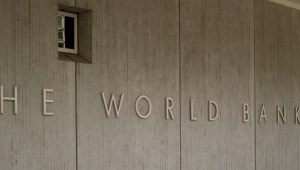London: Japanese investors may reduce UK property holdings, which include stakes in the largest real-estate investment trusts, as they focus on rebuilding in their home country following its strongest earthquake on record. “There must be the risk of a general repatriation of overseas assets by Japanese investors as they focus inwards after the earthquake,” Mike Prew, an analyst at Nomura International Plc, said by telephone. “There may be some selling pressure on stocks if that happens.”
Japanese retail funds hold about 11 per cent of Land Securities Group Plc, the biggest UK real estate investment trust, and 6 to 8 per cent of the larger listed property companies, Prew said in a March 14 report to clients. Investors from the country have purchased $976 million of London properties since 2000, according to New York-based research group Real Capital Analytics Inc, which tracks deals larger than £10 million.
Higher yields.
Harm Meijer, a London-based real-estate analyst at JPMorgan Chase & Co, said his initial expectation is that Japanese investors will pull some money out of property. Mohammad Al-Erian, CEO at California- based Pacific Investment Management Co, also predicts that Japanese investors in general will probably move funds back to their country, according to a telephone interview on “Bloomberg Surveillance” with Tom Keene. Low prices attracted Japanese investors to UK Reits starting in 2009, Prew said. “With a zero interest-rate policy and low-yielding assets in Japan, they liked the higher dividend yields and focused on the most liquid FTSE 100 stocks.”
Investors with holdings in both Land Securities and British Land Co, the second-largest UK Reit, include Sumitomo Mitsui Banking Corp, Nikko Asset Management Ltd and Nomura Holdings Inc. Money would also flow back to Japan if insurers are forced to sell investments to raise cash for claims, said Matthew Richardson, head of European property research at a London-based division of Fidelity International Ltd, which has $246 billion of assets under management. “Liquidating property investments can be expensive and takes time, so you can’t have a knee-jerk reaction,” he said. “What it shows clearly, though, is that there are more risks to property investment than just on the tenant side.”
Japan ranked 19th among countries investing in London over the last decade, Real Capital Analytics said. Deals included Mitsubishi Estate Co’s 105 million-pound purchase of River Plate House, where Mizuho Corporate Bank Ltd. has offices, and Kajima Corp.’s purchase of 5 Savile Row for £40 million in 2008, the London street famous for its tailors.
Assessing the impact.
Real estate investors from Japan have invested $11.8 billion outside their country since 2007. Spain was the most popular destination and accounted for $5 billion and the UK was fourth, RCA said. “In the short term, those types of investment will pause as Japanese investors focus on the domestic market,” said Hans Vrensen, global head of research at real-estate broker DTZ Holdings Inc. “People are still assessing the longer-term damage and its impact on insurance companies.”
Japanese pension funds showed renewed interest in UK real estate starting in the summer of 2009, although no major deals have been concluded, according to John Forrester, head of UK and Ireland at DTZ. The earthquake “is likely to stall that for the foreseeable future,” he said. Donal McCabe, a spokesman for Land Securities, said the company spoke to its Japanese investors regularly, though he declined to comment on their intentions.








